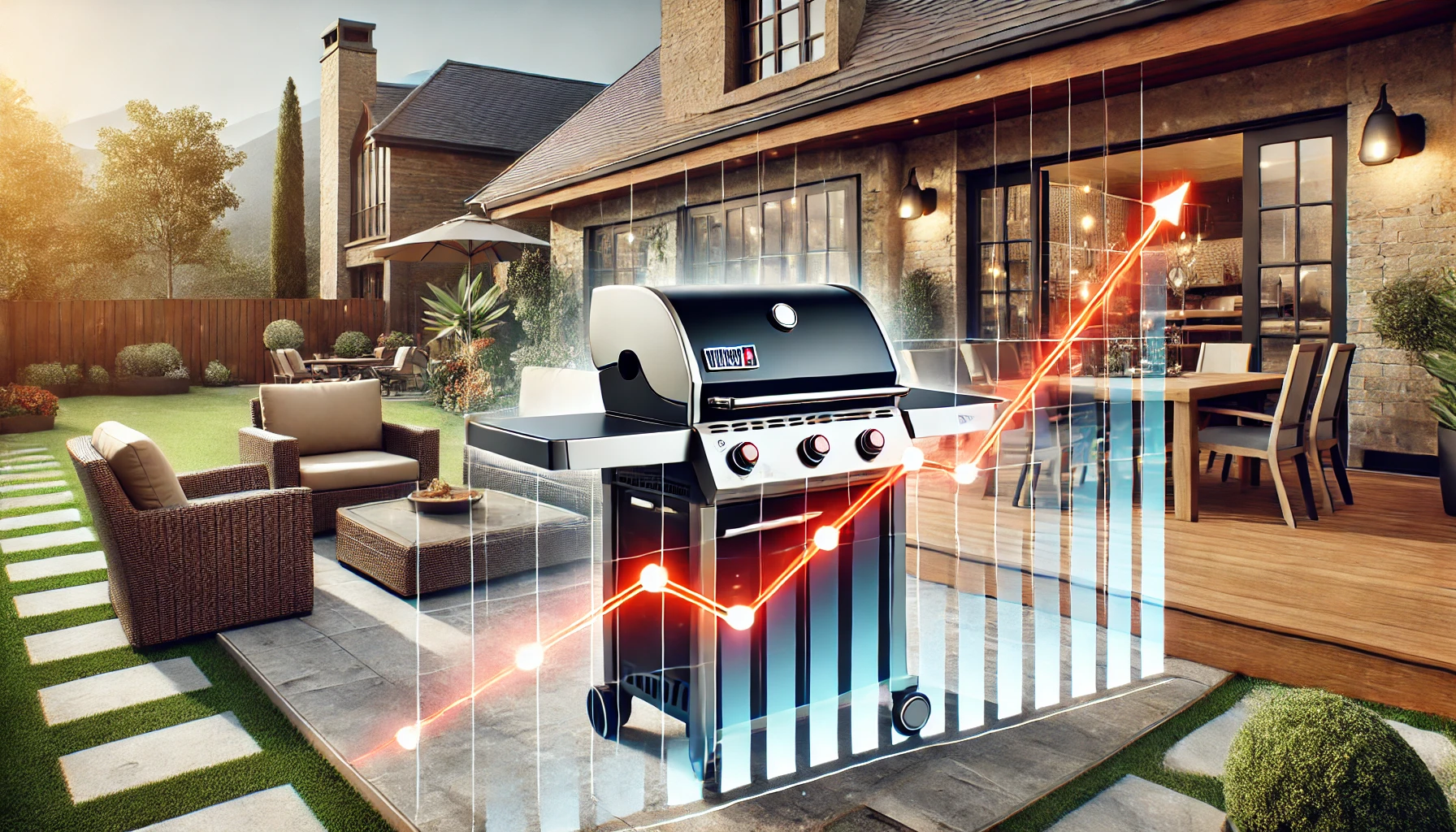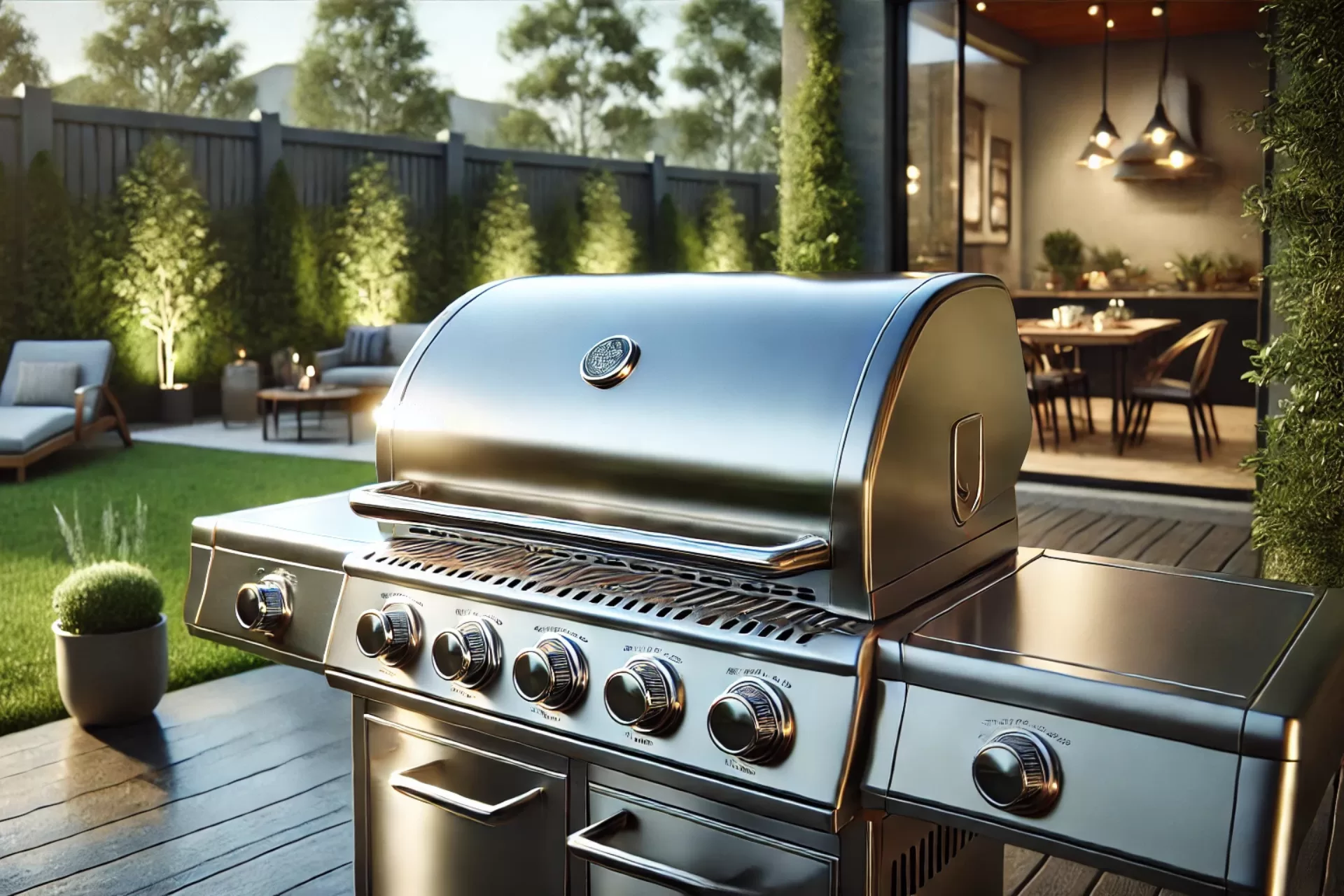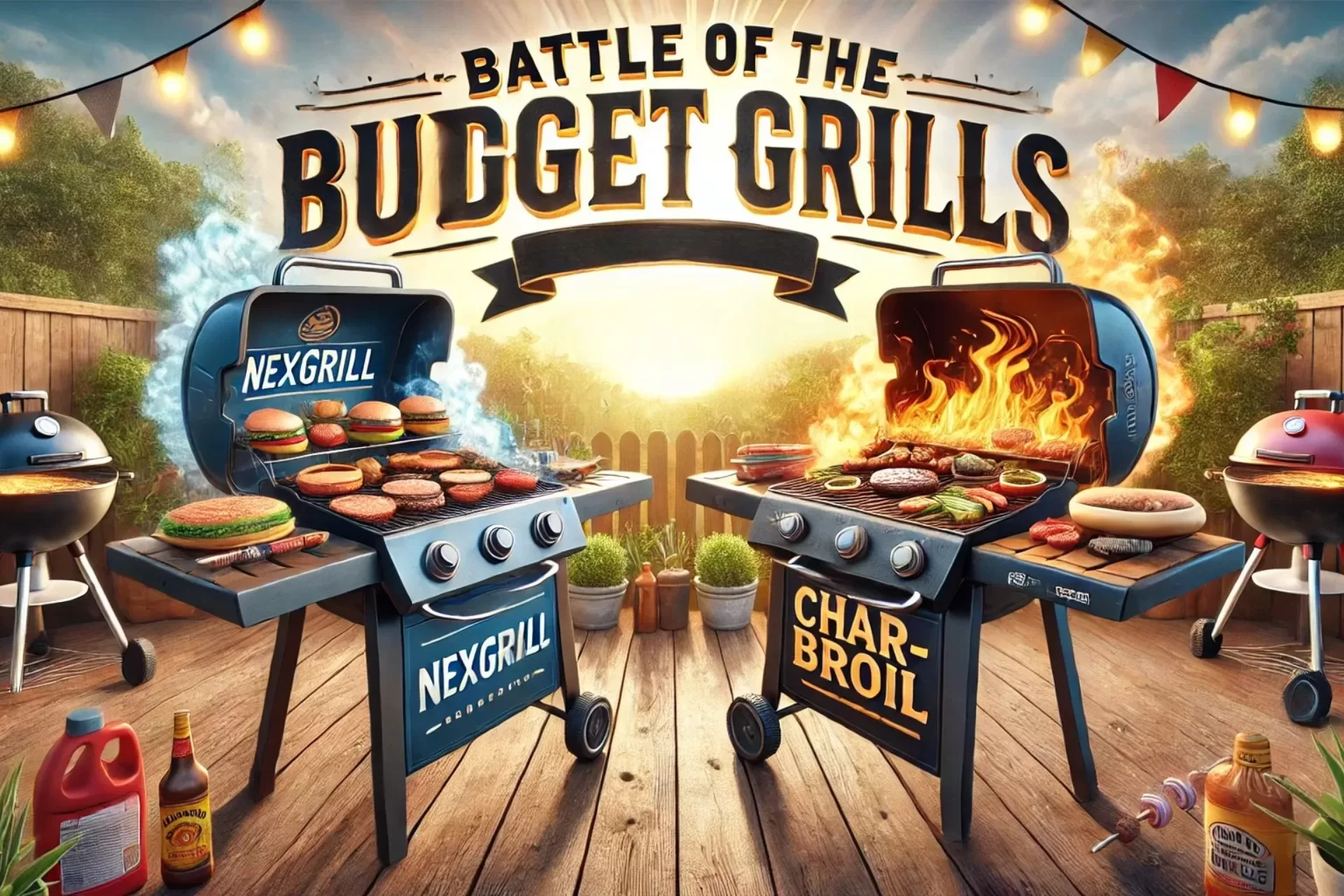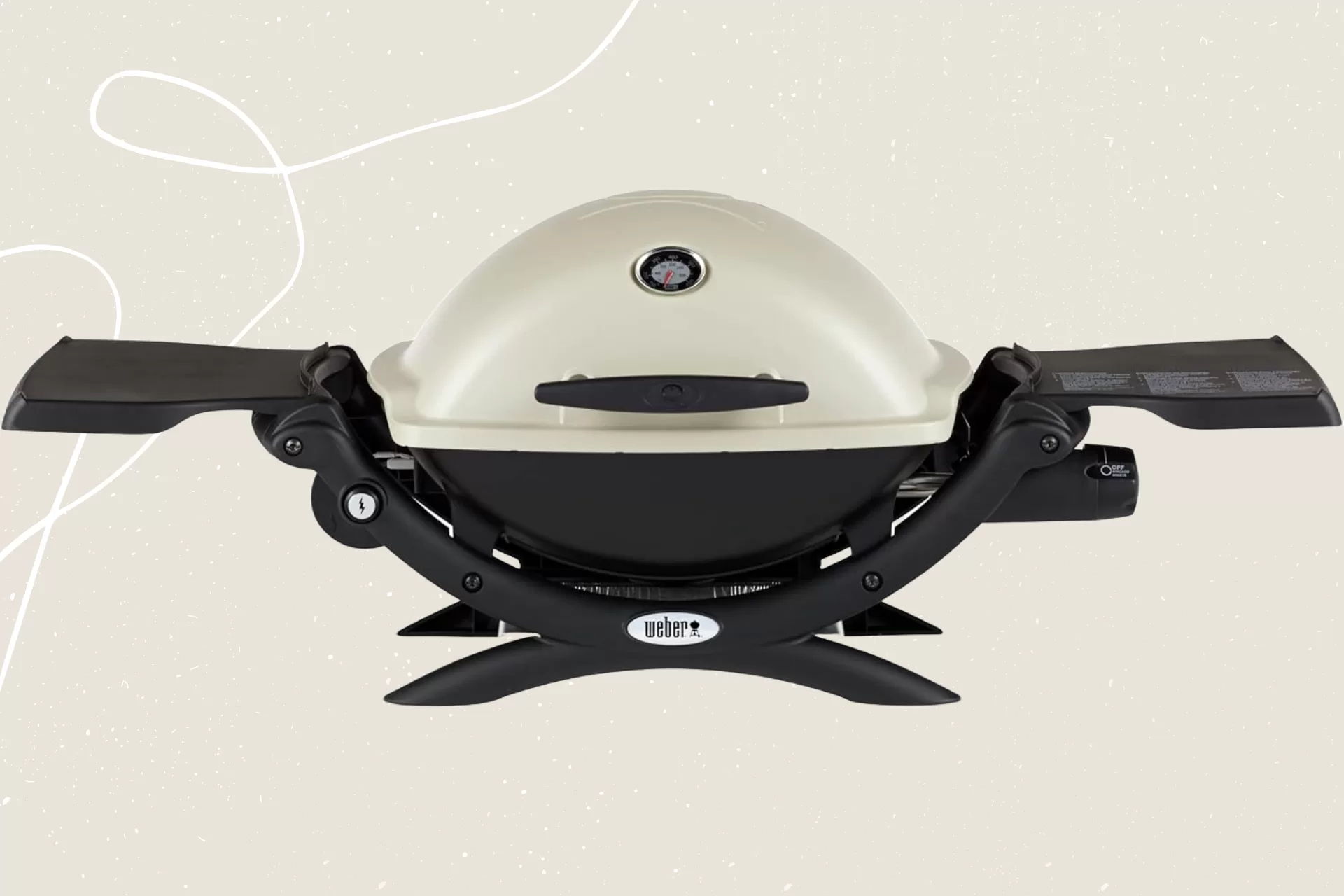If you buy a gas grill, there is one thing you will need to do: connect it to the gas line. Otherwise, you’ll be left with a lifeless grill that won’t produce any succulent steaks or juicy burgers.
Most of the time, it is recommended that you have a professional install a gas grill. But if you want to try your hand at connection, then follow these steps. Simply scroll down to get started:
Other articles you may like:
- Weber Grills vs. Nexgrill
- Best Time to Buy a Grill
- Best Place to Buy a Grill
- Propane vs. natural gas grills
What You Need
Connecting a grill to a gas line isn’t as easy as plugging in your iPhone charger. There is a lot of equipment that is necessary to complete the task. You will need:
- A pipe joint sealant
- Galvanized steel straps
- Gas shutoff valves
- A drill
- Drill bits
- Soap and water
- Quick-connect hose fittings
- Rust-proof spray paint
- A pipe wrench
- A standard adjustable wrench
- A pressure gauge
How to Connect a Grill to the Gas Line
- Start by locating the gas meter.
- Determine the capacity of your gas line. This can be done by looking at the gas meter and reading the cubic feet per hour (CFH) reading. Whatever number is displayed, multiply it by 1,000. This is the capacity of your gas line.
- Decipher which and how many appliances are connected to the gas line. Then, determine how many BTUs each connection needs. For example, some people may have a gas range oven and a fireplace connected to the gas line, and each comes with its own required BTUs.
- Choose a location for your gas grill.
- Shut off the gas line entirely and remove the drip cap.
- Ensure there is a short and clear path from the gas line to your gas grill.
- From there, apply proper pipe joint compounds to secure the connections and tighten the pipes using a wrench. This will reduce the chance of unwanted leaks.
- Add extra support by adding a threaded rod with galvanized hangers.
- Connect the pipes one by one with proper fittings.
- Drill a hole in the wall where the gas line will be fed to the gas grill.
- Add the necessary pipe, complete with a drip cap.
- Attach a pressure gauge to the final pipe.
- Test the pressure. This can be done by spraying the connection with dish soap and water. Bubbles will appear if there is a leak anywhere in the line.
- If no bubbles appear, wait for an hour before checking the pressure gauge. The pressure should remain the same.
- If the pressure remained the same, add a hose fitting at the end. You will need to detach the pressure gauge to do this.
- Spray the pipes with rust-proof paint to ensure it is durable and long lasting.
- Connect the hose to the fitting.
- Go enjoy your new grill!
Yes, you can use natural gas with a propane grill as long as the grill is designed for dual fuel. You can determine whether or not your propane grill can utilize natural gas by reading the owner’s manual. If it can, then it’s relatively simple to set up your propane grill to receive natural gas instead.
All you need to do is to purchase a conversion kit and install it. From there, you will need to make sure that the grill is correctly attached to the gas line and start grilling!
Do you want to switch from a natural gas grill to a propane grill? This can also be done. The first step is to always double-check with the owner’s manual to make sure that it can be converted. From there, you can begin the conversion. Here’s how.
1. Purchase the necessary conversion kit.
2. Turn off and disconnect the natural gas line attached to the barbecue.
3. Remove the front and/or side panels to access the inside parts.
4. Remove all the regulators, valves, and other pieces that are used solely for a natural gas barbecue.
5. Replace these pieces with the new conversion pieces for propane use.
6.Tightly secure all the pieces.
7. Check for gas leaks before returning the front and/or side panels.
Final Thoughts
If you have a dual-fuel barbecue, you’re in luck in terms of options. You can convert your grill to propane or natural gas with ease. Natural gas grills can be somewhat tricky to install if you do not have any experience, and it can also be dangerous. It may be best to hire a professional to install your gas grill.

Jeff Wilson is a writer, product comparison expert, and grilling enthusiast, passionate about helping you save money on popular home products.




